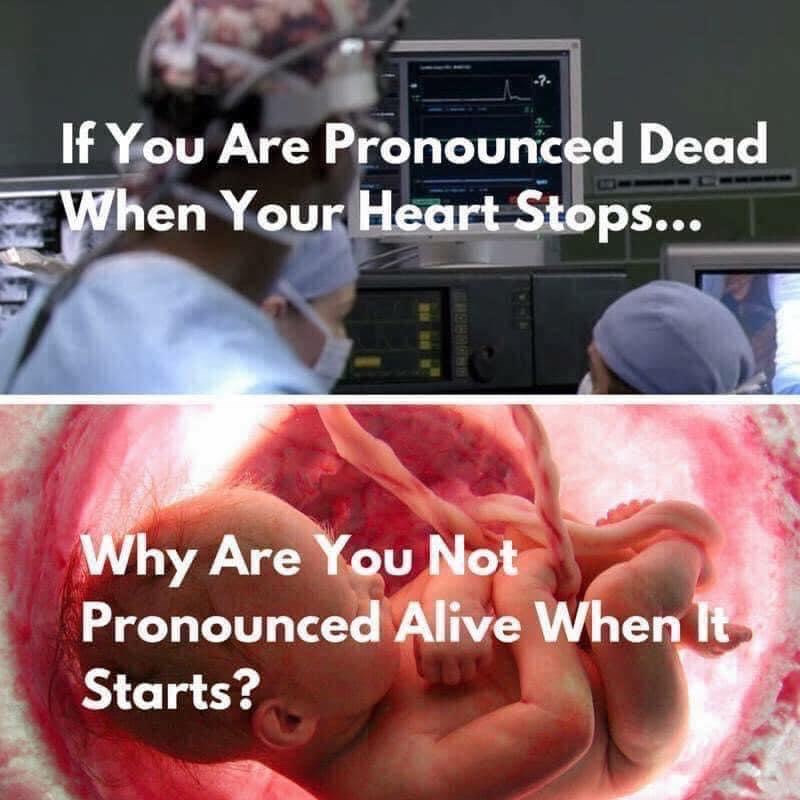The Inconsistency in Defining Life and Death
One of the most contentious issues in society today is the topic of abortion. While opinions on the subject vary widely, there exists a glaring inconsistency in how we define life and death. If the cessation of a heartbeat is the medical and legal definition of death, why isn’t the commencement of a heartbeat considered the beginning of life?

The Medical Definition of Death
The Heartbeat as a Benchmark
In medical terms, death is often pronounced when the heart stops beating and can no longer pump blood to sustain the body. This is known as cardiac death, and it serves as a universally accepted indicator that life has ended.
Legal Recognition
The law also recognizes the absence of a heartbeat as a defining moment of death. In legal disputes, the time of death is often determined by the moment the heart ceases to beat.
The Heartbeat in the Womb
The First Beat
A baby’s heart begins to beat as early as 18 days after conception. This is a significant milestone in fetal development and is often the first sign of life observed in prenatal check-ups.
The Moral and Ethical Implications
If a heartbeat serves as a definitive sign of life’s end, it stands to reason that it should also signify life’s beginning. The ethical implications of ignoring this biological milestone are profound, especially when it comes to the topic of abortion.
The Inconsistency: A Philosophical Perspective
The Value of Life
The inconsistency in how we define life and death based on a heartbeat raises questions about the value we place on life at different stages. If a heartbeat is the ultimate sign of life, then why is it disregarded in the context of abortion?
The Moral Dilemma
This paradox presents a moral dilemma that challenges both the medical community and society at large. It calls into question the ethical frameworks that guide our laws and medical practices.
A Call for Consistency
The heartbeat serves as a biological, medical, and legal benchmark for the end of life. It’s time to consider whether it should also serve as a benchmark for the beginning of life. The inconsistency in this definition highlights a significant ethical gap in the abortion debate, one that deserves thoughtful consideration and discussion.
As an Amazon Associate we earn from qualifying purchases through some links in our articles.



